More Bad Medicine
Seriously, how dumb, or perhaps desperate, would a medical professional have to be to undertake something like this?

Select Page

When we fail to provide adequate treatment for substance disorders, we pay a price in terms of overall public health.
Posted by C. Scott McMillin | Mar 16, 2020 | Prevention, Public Policy | 0 |
Related to disease, mortality, patient education
by C. Scott McMillin | Apr 11, 2024 | 0 |
Seriously, how dumb, or perhaps desperate, would a medical professional have to be to undertake something like this?

by C. Scott McMillin | Apr 8, 2024 | 0 |

by C. Scott McMillin | Apr 4, 2024 | 0 |

by C. Scott McMillin | Apr 1, 2024 | 0 |

by C. Scott McMillin | Mar 28, 2024 | 0 |
by C. Scott McMillin | Apr 11, 2024 | 0 |
Seriously, how dumb, or perhaps desperate, would a medical professional have to be to undertake something like this?

by C. Scott McMillin | Apr 8, 2024 | 0 |

by C. Scott McMillin | Mar 28, 2024 | 0 |

by C. Scott McMillin | Mar 7, 2024 | 0 |

by C. Scott McMillin | Mar 4, 2024 | 0 |
by C. Scott McMillin | Apr 4, 2024 | 0 |
ALD (alcohol-related liver disease) in the United States is projected to cost $355 billion in direct healthcare-related costs and $525 billion in lost labor and economic consumption.

by C. Scott McMillin | Nov 2, 2023 | 0 |
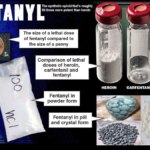
by C. Scott McMillin | Feb 2, 2023 | 0 |

by C. Scott McMillin | Jul 14, 2022 | 0 |
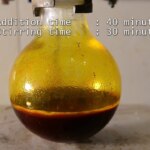
by C. Scott McMillin | May 23, 2022 | 0 |
by C. Scott McMillin | Apr 1, 2024 | 0 |
...a number of years ago, the Institute of Medicine set forth guidelines intended to reduce the influence of advertising on how physicians prescribed medications... to date, relatively few physicians have actually adopted those guidelines.
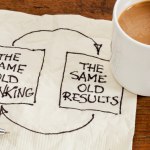
by C. Scott McMillin | Mar 11, 2024 | 0 |

by C. Scott McMillin | Jan 1, 2024 | 0 |

by C. Scott McMillin | Dec 25, 2023 | 0 |

by C. Scott McMillin | Dec 14, 2023 | 0 |
by C. Scott McMillin | May 9, 2024 | 0 |
Being at risk does not mean that at some point, all those folks will wind up needing treatment. The vast majority will not. Still, that elevated risk is important to those who will be.

by C. Scott McMillin | May 6, 2024 | 0 |

by C. Scott McMillin | May 2, 2024 | 0 |
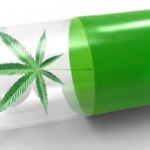
by C. Scott McMillin | Apr 29, 2024 | 0 |

by C. Scott McMillin | Apr 25, 2024 | 0 |
by C. Scott McMillin | May 9, 2024 | 0 |
Being at risk does not mean that at some point, all those folks will wind up needing treatment. The vast majority will not. Still, that elevated risk is important to those who will be.

by C. Scott McMillin | Apr 29, 2024 | 0 |

by C. Scott McMillin | Apr 18, 2024 | 0 |

by C. Scott McMillin | Apr 4, 2024 | 0 |

by C. Scott McMillin | Mar 25, 2024 | 0 |
by C. Scott McMillin | May 6, 2024 | 0 |
"The thrill is gone," he griped. "We already won, man."
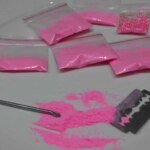
by C. Scott McMillin | Apr 15, 2024 | 0 |

by C. Scott McMillin | Mar 21, 2024 | 0 |

by C. Scott McMillin | Mar 18, 2024 | 0 |

by C. Scott McMillin | Feb 8, 2024 | 0 |
by C. Scott McMillin | Nov 30, 2023 | 0 |
If I had to recommend something, it would be for schools and parents to grab onto those evidence-based approaches and make them integral to your school culture.
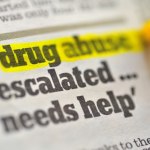
by C. Scott McMillin | Mar 18, 2021 | 0 |

by C. Scott McMillin | Mar 16, 2020 | 0 |

by C. Scott McMillin | Feb 27, 2020 | 0 |

by C. Scott McMillin | Dec 26, 2019 | 0 |
by C. Scott McMillin | May 2, 2024 | 0 |
Recovery isn't just about big, life-changing decisions. It's mostly in the myriad little choices we all make, every single day of our lives.

by C. Scott McMillin | Apr 25, 2024 | 0 |
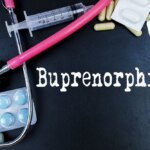
by C. Scott McMillin | Mar 14, 2024 | 0 |

by C. Scott McMillin | Feb 1, 2024 | 0 |
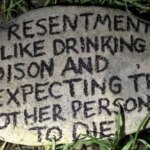
by C. Scott McMillin | Dec 7, 2023 | 0 |
by C. Scott McMillin | Jan 15, 2024 | 0 |
They found no clear correlation between cannabis use and a lessening of opioid dependence.

by C. Scott McMillin | Dec 18, 2023 | 0 |

by C. Scott McMillin | Aug 24, 2023 | 0 |
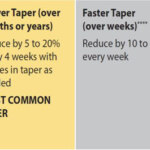
by C. Scott McMillin | Jun 22, 2023 | 0 |

by C. Scott McMillin | Mar 9, 2023 | 0 |
by C. Scott McMillin | Aug 3, 2023 | 0 |
We've known for several decades that regular exercise, even the mild sort, helps lessen symptoms of depression. It comes as no surprise that it may also help with CPS and the mood problems that accompany it.

by C. Scott McMillin | Mar 2, 2023 | 0 |

by C. Scott McMillin | Dec 26, 2022 | 0 |

by C. Scott McMillin | Dec 22, 2022 | 0 |

by C. Scott McMillin | Oct 17, 2022 | 0 |
by C. Scott McMillin | Oct 17, 2022 | 0 |
The term was invented in the 1930’s to describe someone prone to becoming psychotic or severely disturbed under stress, but who otherwise was capable of functioning normally.

by C. Scott McMillin | Sep 12, 2022 | 0 |

by C. Scott McMillin | Jul 18, 2022 | 0 |

by C. Scott McMillin | Jun 13, 2022 | 0 |
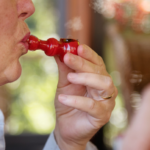
by C. Scott McMillin | May 2, 2022 | 0 |
by C. Scott McMillin | Mar 2, 2023 | 0 |
Most of the time, there’s an extended period in which the drinker is engaged in something called ‘comparing out’. That's when they're focused on what isn't wrong with their drinking, and ignoring or minimizing what is.

by C. Scott McMillin | Dec 26, 2022 | 0 |

by C. Scott McMillin | Mar 10, 2022 | 0 |

by C. Scott McMillin | Feb 10, 2022 | 0 |

by C. Scott McMillin | Jan 6, 2022 | 0 |
by C. Scott McMillin | Aug 3, 2023 | 0 |
We've known for several decades that regular exercise, even the mild sort, helps lessen symptoms of depression. It comes as no surprise that it may also help with CPS and the mood problems that accompany it.

by C. Scott McMillin | Dec 22, 2022 | 0 |

by C. Scott McMillin | Jun 9, 2022 | 0 |

by C. Scott McMillin | Jan 20, 2022 | 0 |

by C. Scott McMillin | Sep 9, 2021 | 0 |
by C. Scott McMillin | Jan 3, 2022 | 0 |
If 70% or more of a jail population has been identified as having a drug or alcohol problem – that does happen – then what you’re really operating is a treatment center that happens to have bars on the windows and guards at the entrance.

by C. Scott McMillin | Oct 18, 2021 | 0 |

by C. Scott McMillin | Sep 16, 2021 | 0 |

by C. Scott McMillin | Sep 13, 2021 | 0 |

by C. Scott McMillin | May 24, 2021 | 0 |
by C. Scott McMillin | Mar 5, 2020 | 0 |
In fact, in many instances, the trauma that occurs after they’re addicted is more damaging than what happened before.
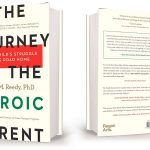
by Brad Reedy | Dec 10, 2018 | 0 |

by Jason Hyland | May 21, 2018 | 0 |
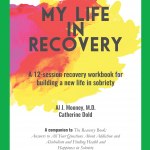
by Catherine Dold | Feb 23, 2017 | 0 |
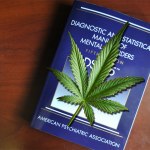
by C. Scott McMillin | Nov 14, 2016 | 1 |
by C. Scott McMillin | Mar 5, 2020 | 0 |
In fact, in many instances, the trauma that occurs after they’re addicted is more damaging than what happened before.

by Brad Reedy | Dec 10, 2018 | 0 |

by Jason Hyland | May 21, 2018 | 0 |

by Catherine Dold | Feb 23, 2017 | 0 |
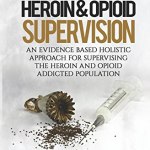
by Miller VanFossen | Jun 27, 2016 | 0 |
by C. Scott McMillin | Nov 14, 2016 | 1 |
It certainly makes sense that if you suffer from a major mental illness, you should stay away from pot.

by C. Scott McMillin | Jul 14, 2014 | 0 |

by C. Scott McMillin | Jul 7, 2014 | 0 |


by C. Scott McMillin | Jun 18, 2013 | 4 |
People have abused opiates for 5,000 years. As much as medicine depends on them, they've always created problems for a percentage of users.